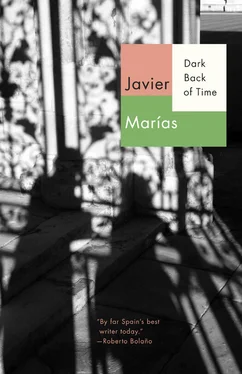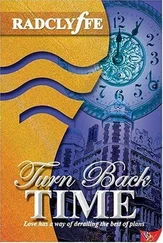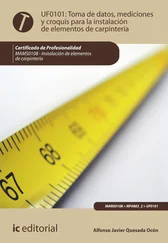“I’ve also seen a photo of his death mask. He had just taken leave of age and the passage of time itself when the mask was made, but immediately before that he had been a man of fifty-eight. It was made by Hugh Olaff de Wet on September 23, 1970, the day of or the day after Gawsworth’s death in London, in the Borough of Kensington where he was born. His old friend from Cairo, Sir John Waller, donated it to the Poetry Society, but these kind attentions came posthumously and too late. The man who was John Gawsworth and Terence Ian Fytton Armstrong and Orpheus Scrannel and Juan I, King of Redonda, and also, at times, just Fytton Armstrong or J.G. or even simply G. now has his eyes closed and no kind of gaze at all. The folds are definite bags now, the wrinkles in the forehead aren’t as distinct (the skull has bulged) and the eyelashes look thicker, which could be a side-effect of the sealed eyelids. The hair would appear to be white — but maybe because the mask is made of plaster — and the hairline has receded since the 1940s, the outer limit of his youth, the war against the Afrika Korps. The moustache seems thicker but also limper, it both bristles and droops, the moustache of an old soldier who’s grown weary of combing it. The nose is longer and broader, the cheeks are very flaccid, the whole face is swollen as if with false fleshiness and despair. He’s grown jowly. There can be no doubt that he is dead.” I now suspect that they shaved him while he was in the hospital or when he was already a corpse, because I’ve seen a photograph of him in his final days that shows him with an ugly, long, scraggly beard as befitted the beggar he then was. I also know that the correct name of the mask maker, about whom I knew nothing else when I wrote those pages, was Hugh Oloff de Wet; I also know that De Wet was in Madrid the year I was born in Madrid, and that twice long before then he almost faced a firing squad, once in Valencia and the second time in Berlin. And that in Spain he had lost an eye (or said he had) and had killed, there and in other places, before and after Spain. The novel’s gentleman narrator went on:
“But with this final face he must have wandered the London streets, wearing the kind of raincoat or jacket that tramps always manage to get hold of. He brandished bottles and pointed out to his incredulous cohorts his own books, lying in the bargain boxes in Charing Cross Road, which he was unable to buy. He must have told them about Tunis and Algeria, Italy, Egypt, and India. In the face of their laughter, he would declare himself the King of Redonda. With this face, he must have slept on park benches and entered the hospital, as the dictionary specializing in the literature of horror and the fantastic said, and with this face he may have been incapable of reaching out the hand that had once held a pen and piloted airplanes. Perhaps he was proud and ferocious, as British beggars often are, brutal and aloof, threatening and haughty; he may not have known how to beg for himself. He was undoubtedly drunk, and at the end of his life he didn’t spend years in Italy, only a few weeks in the Abruzzi, in Vasto, for a final binge about which I know nothing. ‘A final binge,’ was what the individual from Nashville, with whom I have had no farther contact, said in his letter. There was no Gawsworth to save Gawsworth, no promising and enthusiastic writer to try to make him see reason and force him to write again (perhaps because his work is not admirable and no one wanted him to go on), or to request and obtain a pension for him from the Royal Society of Literature, of which he was once an elected Fellow, the youngest. Neither was there any woman, among the numerous women he had had, to check his drift or accompany him in it. Or so I believe. Where are they now, where do they lie, those women, British and colonial? Where are his books, the books he could pick out at a glance amid labyrinths of chaotic, dusty shelves, as I could from the Alabasters’ shelves and those of many other booksellers in Oxford and London? (I, too, with my gloved and agile fingers that barely graze the spines which they skip across more quickly than my eyes, like a pianist playing a glissando , I, too, can always pick out what I’m looking for, to the point that I’ve often felt it was the books that were looking for me, and found me. They’ve probably gone back to the world where all or most of them always return, the patient, hushed world of old books, which they leave only temporarily. Perhaps other books that I own, in addition to Backwaters , also passed through Gawsworth’s hands, bought and sold immediately to pay for breakfast or a bottle, or remained, perhaps for years, among the select volumes of his library, or went with him to Algeria and Egypt, Tunis and Italy and even India, and saw combat. Perhaps one or another of the baleful beggars had owned books, those beggars I walked past every day in Oxford, again and again, and was afraid of and identified with and in whom a slight, passing delirium made me see myself in anticipatory (or not so anticipatory) reflection. Perhaps one of them had written books, or taught at Oxford, or had a mistress-mother who clung to him at first but then became evasive and unscrupulous (when she was more of a mother); or perhaps he had come from a country to the south — with a hand organ that was lost upon arrival and that determined his destiny, perhaps when he disembarked at the port of Liverpool — a country to which, he still had not forgotten, it isn’t always possible to return.” (Death does not know how to walk slowly there.)
Thus closed that chapter of All Souls which, in the end, I’ve reprinted in its entirety here except for the first paragraph — and, as feared, with additional notes and comments. Three lines from those pages gave rise to the short story “An Oath of Fealty” that same year, 1989, a few months after the novel came out, with Gawsworth in his final phase as the main character. But the first time I spoke of him in writing was in a piece of non-fiction, an article I published in the newspaper El País on May 23, 1985, twelve years ago now, when I was still living in Oxford and feeling something quite similar to what the narrator called his “slight, passing delirium,” with respect to the beggars of that city and the writer who ended up as one in London. The article was entitled “El hombre que pudo ser rey” or “The Man Who Could Be King,” in obvious allusion to the famous story by Rudyard Kipling, “The Man Who Would Be King,” also known in my language as “El hombre que pudo reinar” or “The Man Who Could Reign,” since that was the Spanish title of the John Huston film based on that fantastical story — the favorite of both Faulkner and Proust — which featured the British actors Sean Connery and Michael Caine. Both pieces were later reprinted, the story in my collection Mientras ellas duermen ( While the Women Sleep ) and the article in Pasiones pasadas ( Past Passions ), a collection of my non-fiction. The final sentences cited above refer to two circumstances or facts related only to the narrator; two others that are shared by narrator and author (teaching at Oxford and the possession of books), or perhaps three; and one which, improperly, belongs only to the author, since at no moment in the novel is it stated or hinted that the Spanish gentleman who’s telling the story and digressing from it has ever written books, even if, in fact he is writing one now as he digresses and tells. It wasn’t a mistake or an oversight, a thoughtless intrusion or moment of forgetfulness, it was deliberate, for, as I said before, these are the most autobiographical pages in the novel and it seemed honorable to tacitly confess that by means of this apparent slip which, as was to be hoped and expected, passed unnoticed by those who read it. (I also did it for the risk, one is always tempted to throw in some blots and smudges, for love of transgression and to betray oneself, and to see if they can pass for unblemished text.)
Читать дальше












